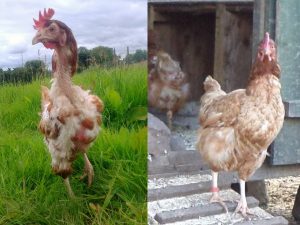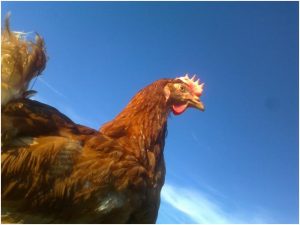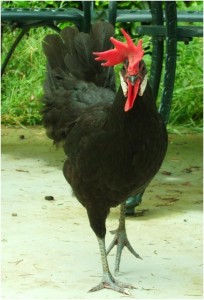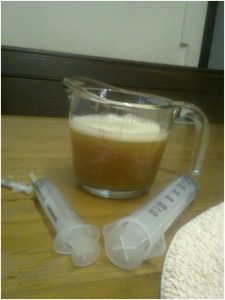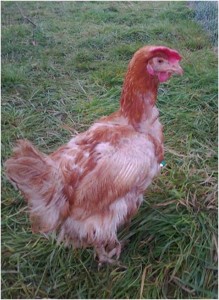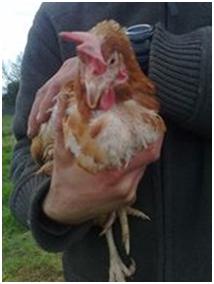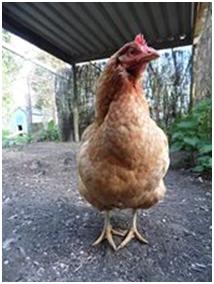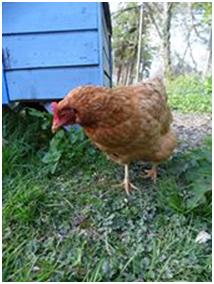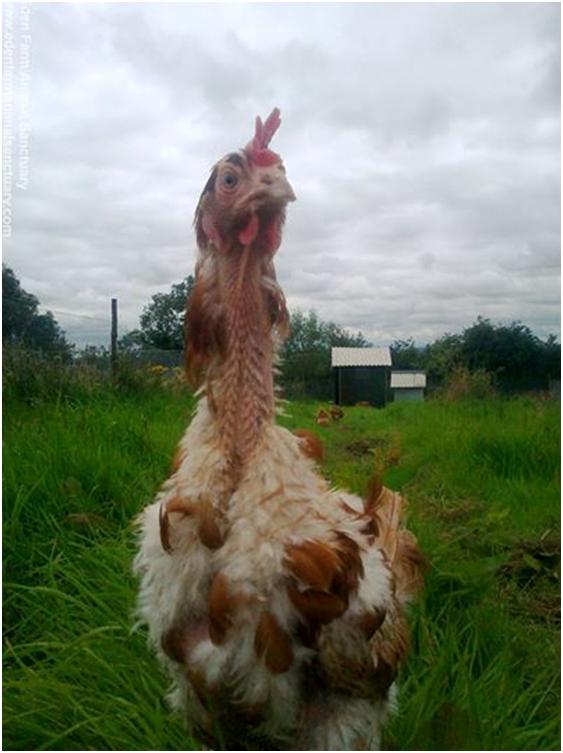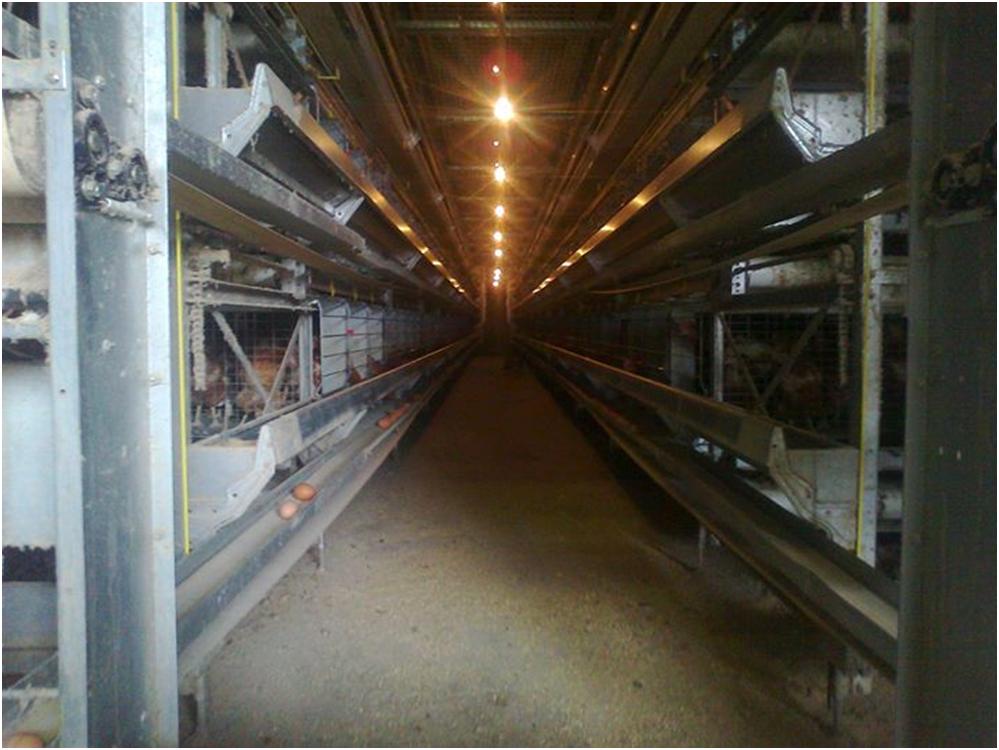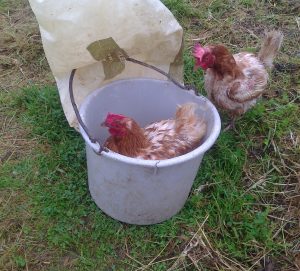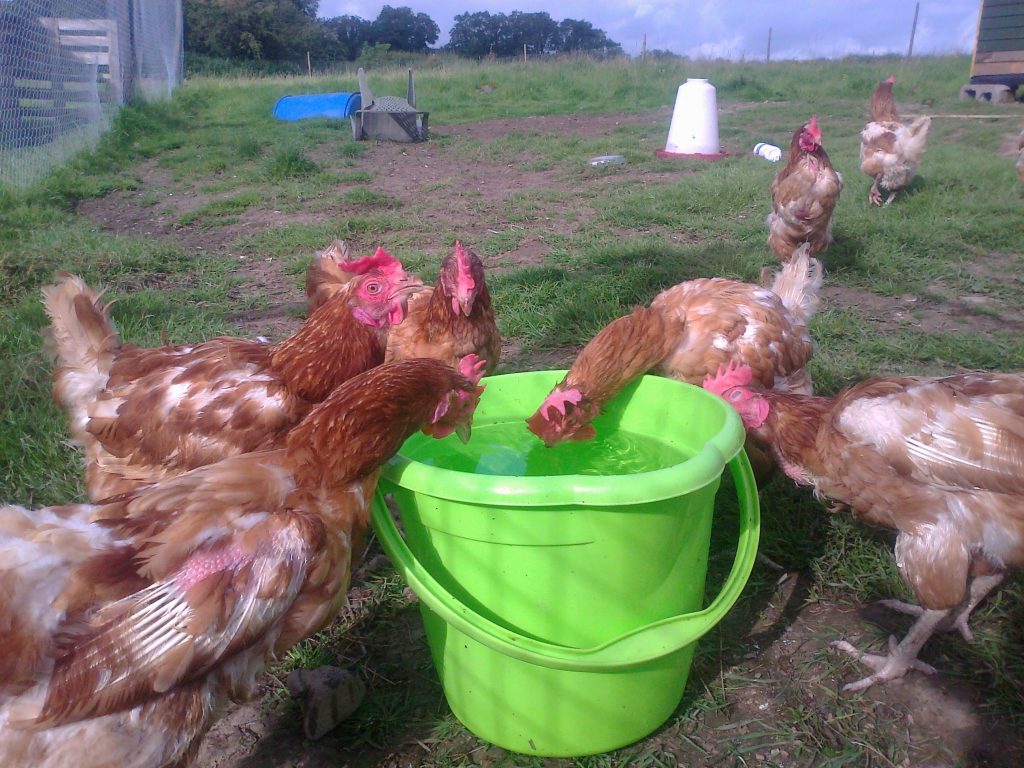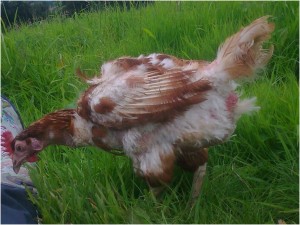May was International Respect for Chickens month. This project was launched in 2005 by Karen Davis, United Poultry Concerns, in celebration of chickens and in protest against our oppression of them when we see them as food. For those of you who do not follow Eden Farmed Animal Sanctuary on Facebook, the following are our posts about chickens throughout the month. The best way to respect chickens is to be vegan: make every month International Respect for Chickens month.In celebration of International Respect for Chickens day on 4th May, I spoke with Bob Linden of World Vegan radio https://www.goveganradio.com/2014/05/10/04-may-2014/ about the myth of humane animal foods and the price that I have witnessed other animals paying for the myths we tell ourselves as we try to justify our exploitation of them. Joy, a hen rescued from an enriched battery cage, will be remembered at Bob’s forthcoming World Vegan Summit & Expo, in Los Angeles, 20-22 March, 2015. In death she has become a powerful ambassador for chickens, her face and body, and the narrative of her life at Eden, will continue to dispel the humane myth.
2nd May 2014
May is International Respect for Chickens month If you want to respect sentient beings, begin by going vegan
6th May 2014 International Respect for Chickens Month
Male chickens, in the egg production industry do not grow to adulthood as Victor (pictured here) has. Every year billions of chickens, each as individual and precious as Victor who lives at Eden Farm Animal Sanctuary are gassed or ground alive at one day old. They struggle painfully to breath as they die; many do not die instantly but hours later from severe amputations and injuries sustained by the blades. Regardless of the label on the eggs, males are not profitable to egg producers so the sale and consumption of eggs are inextricably linked with the horrendous death of innocent, beautiful new borns. Every female in the egg production industry had a brother who was born into this fate. As a vegan you can stop being complicit in harming others. 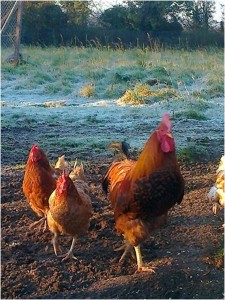
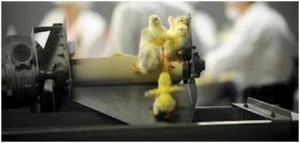
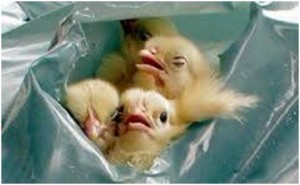 7th May 2014
7th May 2014
Egg laying hens (caged, free range, organic and backyard), being bred for exploitation of their reproductive systems to lay >300 eggs per year versus the two clutches per year that are natural for them, are highly prone to a condition called Ascites. Infection, cancer, liver or heart disease causes them to fill with fluid which compresses their intestines, lungs and other internal organs and can cause excruciating death. Chickens with this condition who have been rescued from food production and live at sanctuaries only survive when drained regularly and treated appropriately. (Pictured: Vicky, a hen at Eden who, although she looks extremely poorly and exhausted in this picture, lived to see another day. She requires regular monitoring and treatment of this problem). There is NO humane use of other animals There are NO humane eggs If you are not vegan please look at the suffering you are participating in. By going vegan you can stop hens like Vicky from being bred to live like this. It costs so little for most of us to be vegan. It means everything to them. 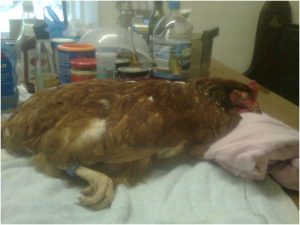
Osteoporosis in Hens used for Eggs: Osteoporosis in hens is similar to osteoporosis in humans. Caged hens suffer from being immobilised: like humans who cannot exercise, the lack of movement causes their bones to become compromised and fracture. However, free range, organic and back yard hens also have osteoporosis. Egg shells demand calcium in huge amounts. It is virtually impossible to include sufficient calcium in hens’ diets to meet the unnatural demand for 300 eggs per year. This calcium is met by the supply in their bones thus depleting them and leaving them prone to painful fractures. Hope (pictured on arrival at Eden and now) suffered fractures while in a battery cage (visible in her toes). She is still living at Eden Farm Animal Sanctuary, one of the few remaining survivors of a group rescued from battery cages in 2012. She suffers from ascites and requires drainage on a weekly basis.
If you eat eggs you participate in the exploitation of the reproductive system of a sentient female. This is true regardless of the label on the eggs you purchase. Consider going vegan and preventing females like Hope from enduring this kind of unnecessary suffering.
“… all egg laying hens suffer by virtue of being bred to live embodied in a distorted version of their natural selves. The compromises to their natural health that all hens face when they are genetically bred to lay eggs imprisons them in bodies that are prone to severe suffering. This suffering is shared equally regardless of the systems in which they are confined.
Their suffering does not cease after rescue. They are embodied in a physiology that will always compromise their health and wellbeing, until the day they die. We have inflicted this embodiment on them so that we can take their eggs for our food. The only possible solution is to stop breeding them, and all other sentient beings, for our use.” (Pictured: Leonie, rescued free range hen and the cancerous tumor that killed her) From the report: Enriched Cages, Embodied Prisons, https://www.edenfarmanimalsanctuary.com/wp-content/uploads/2013/05/Enriched-Cages-and-Embodied-Prisons.pdf 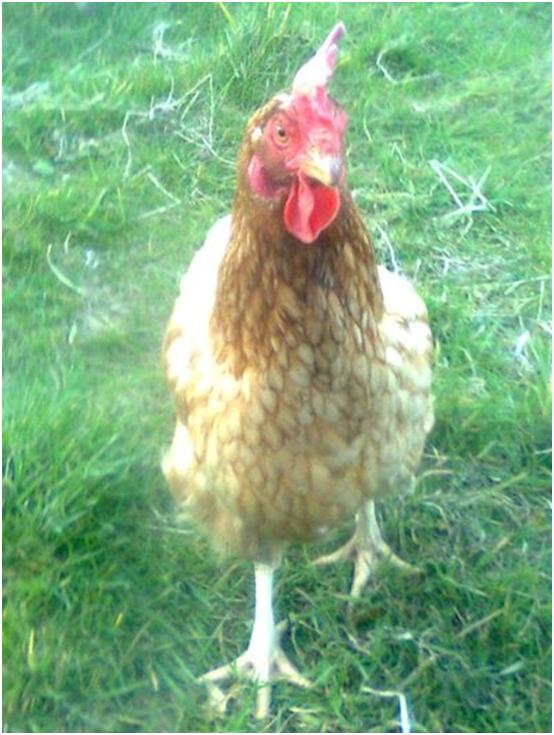
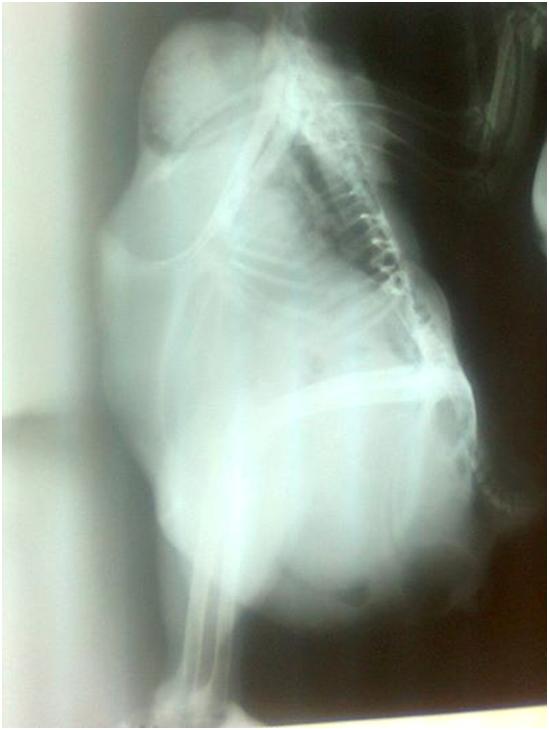
16th May, 2014
Residents from Eden Farm Animal Sanctuary represented the farmed animals whose rights continue to be violated by current animal welfare legislation in protest at Minister Coveney’s Animal Welfare Conference, Dublin Castle, Friday 16th May. Our representation clearly demanded vegan abolitionism and animal rights; not welfare reform. Thanks to Ed Long and Sam Ni Mheachair for carrying Amy and Joy’s posters at this event. 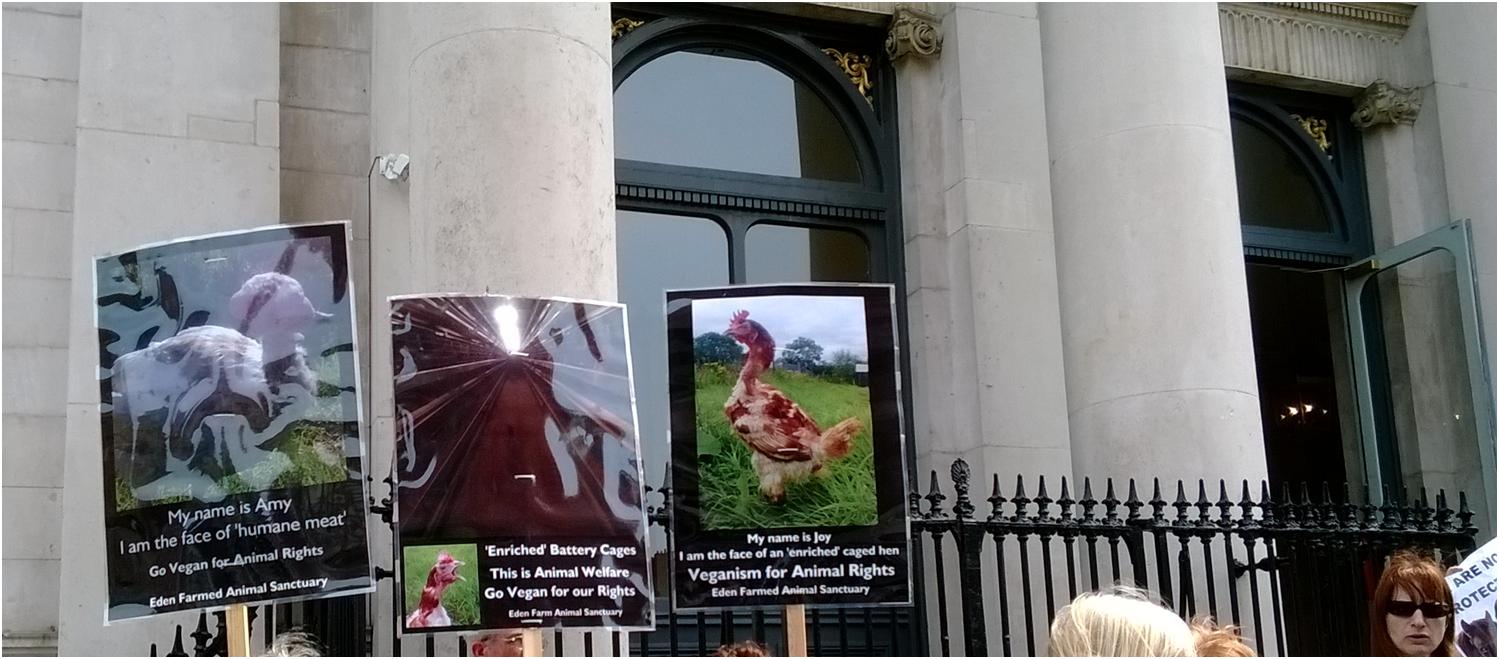
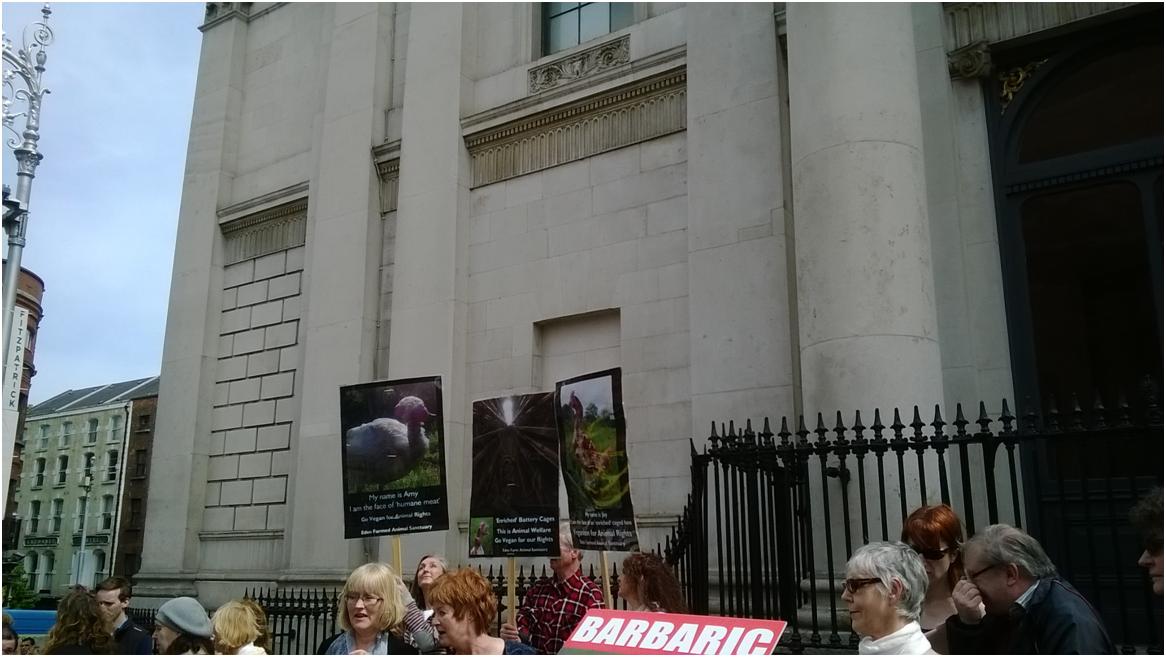 What is the solution to the plight of chickens? It is not bigger cages, or free range or organic egg and chicken flesh production. It is rights; not welfare. It is vegan abolition: complete cessation of the breeding of sentient beings into bodies that are artificially selected to feed the human demand for taste, tradition, convenience and culture. If you care then stop eating their eggs and their flesh.
What is the solution to the plight of chickens? It is not bigger cages, or free range or organic egg and chicken flesh production. It is rights; not welfare. It is vegan abolition: complete cessation of the breeding of sentient beings into bodies that are artificially selected to feed the human demand for taste, tradition, convenience and culture. If you care then stop eating their eggs and their flesh.
18th May 2014
Timothy is one of the many cockerels rescued and taken to Eden Farm Animal Sanctuary following a history of being the abandoned, homeless victims of backyard chicken keeping. Like other species chickens have a 50% chance of being male, although most breeders favour hens for their ability to lay eggs. In our domesticated conditions, without sufficient space to roam, groups of males will experience conflict. Their beautiful crowing is a further source of irritation to many humans, including the humans who bred them into existence. The answer is not to abandon beautiful beings like Timothy. The answer is not to breed other beings for our use. Its called respect. Its called veganism. 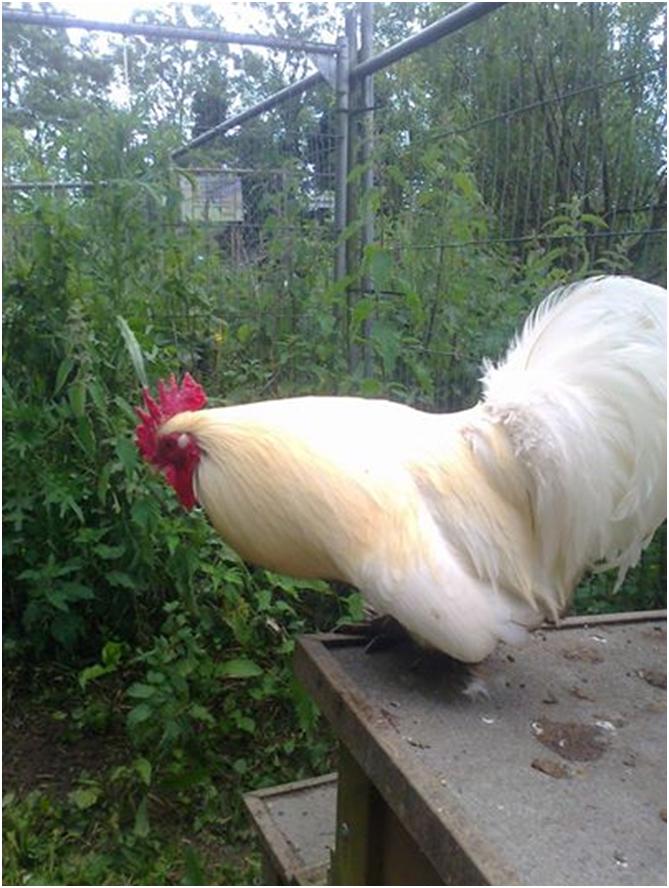
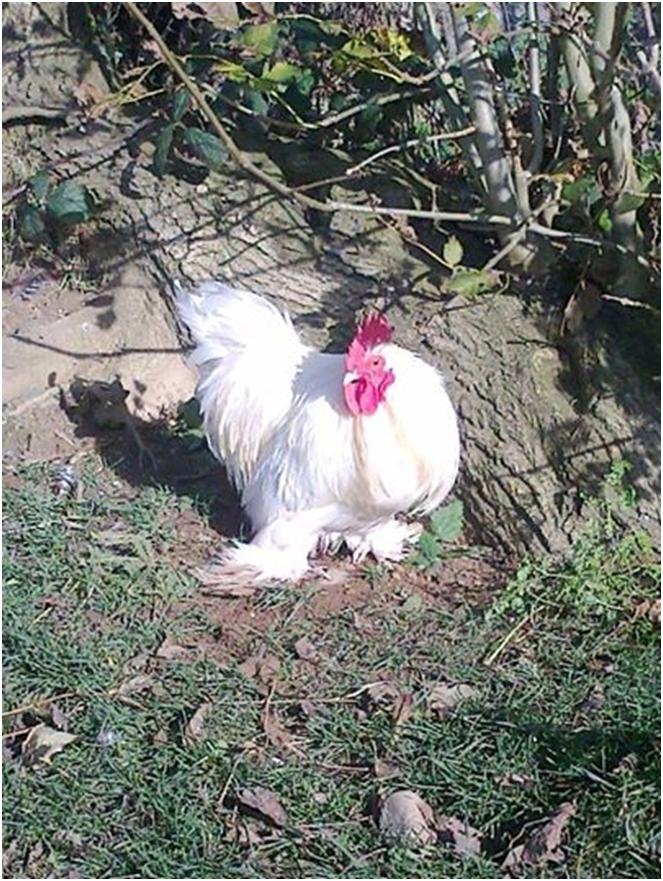 19th May, 2014-06-05
19th May, 2014-06-05
Chickens bathe in dust in the way that humans bathe in water. Dust bathing is not only an exercise in hygiene; like humans who enjoy baths and showers, dust bathing is a very pleasurable activity for birds. It is usually not a solitary activity, showing their highly social nature. It begins when the male finds a good spot with lots of nice, dry dust. He calls the females with gurgling, excited sounds. They all gather and socialise together in the dust bath. They use their beaks and feet to dig hollows for their bodies and then use their wings to distribute the dust throughout their feathers. The dust acts as a natural deterrent to mites and lice. When they are finished they shake the dust from their feathers. The hens in this video, Verona and Vicky, were rescued from an enriched battery cage where these kinds of dust baths are impossible.
22 May 2014
May is International Respect for Chickens month Chickens have a large range of vocalisations: meaningful utterances that serve a communicative and social role with their comrades, and with humans. When we see other animals through the lens of how they can provide for us, we miss who they are, for themselves, and for each other. Veganism is just the beginning: once we respect them, the door opens to their wonder. (Simon: an abandoned rooster, found in a field a few miles from Eden Farm Animal Sanctuary) 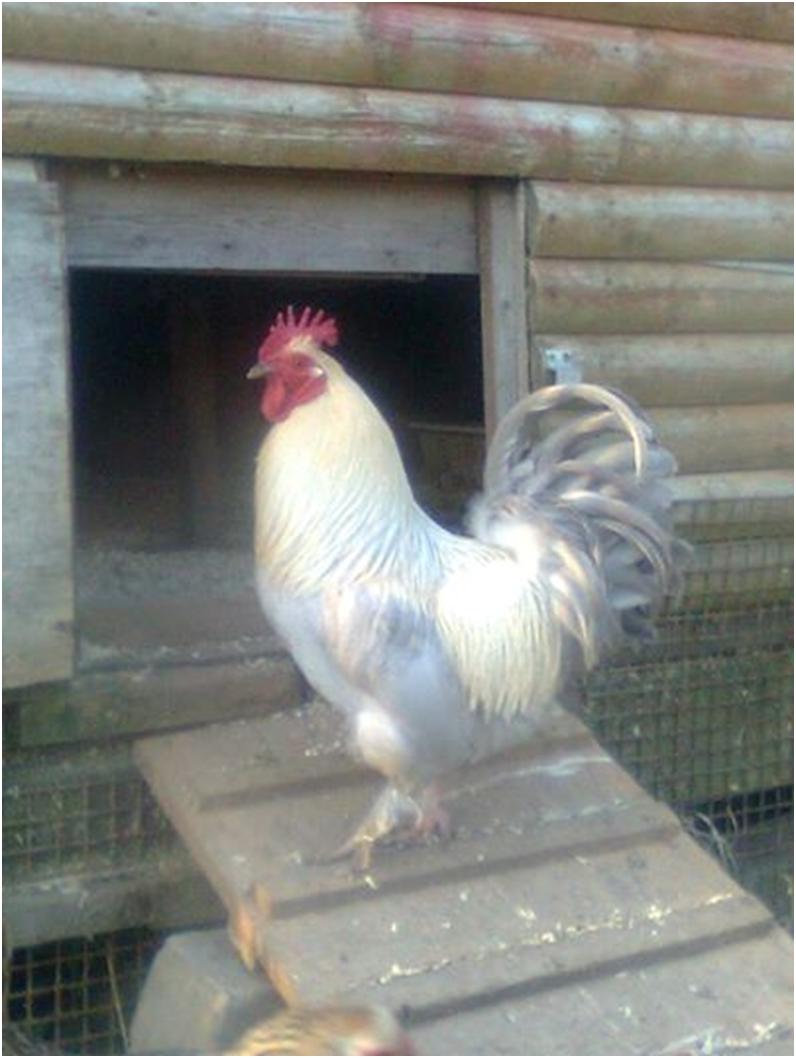
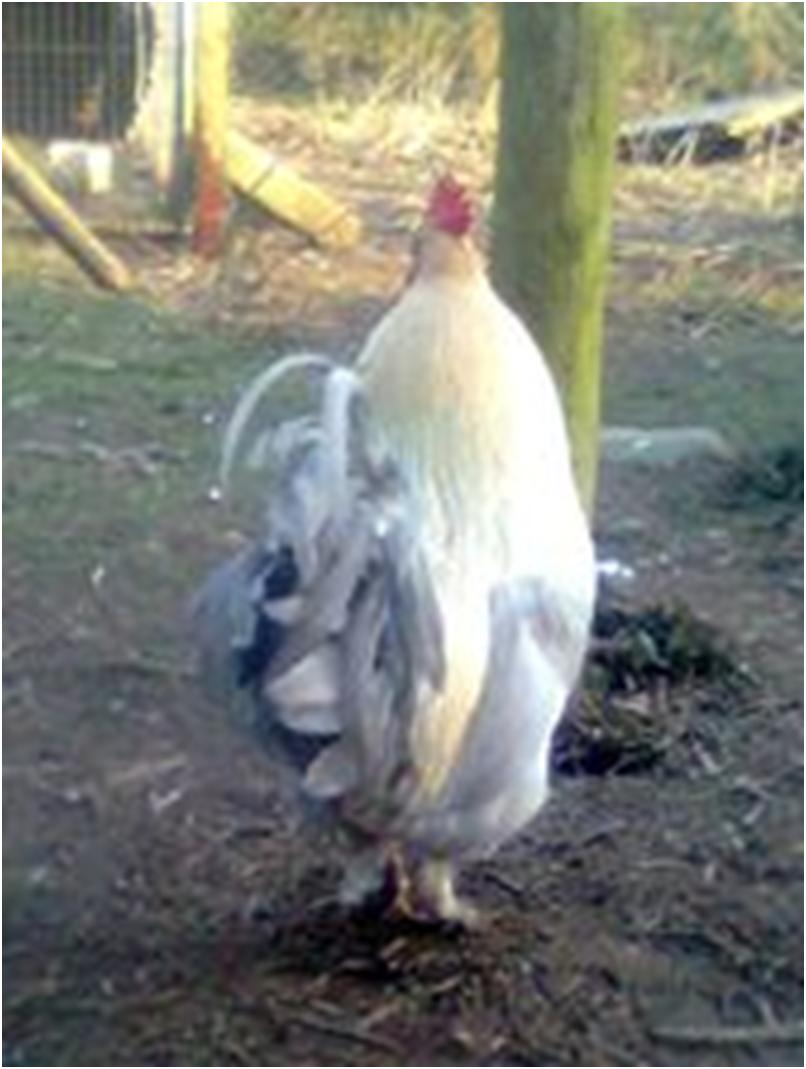 23 May 2014
23 May 2014
Chickens are always busy: they roam vast areas exploring and looking for bits and pieces to eat; they socialise and chatter together; they dust bathe, sun bathe, fly short, fast distances, run, flap their wings, and shake their bodies, fall in love, mate, hatch eggs, and mind their offspring. They have their own purpose in life: and it does not include serving humans. “The other animals humans eat, use in science, hunt, trap and exploit in a variety of other ways have a life of their own that is of importance to them, apart from their utility to us. They are not only in the world, they are aware of it and also of what happens to them. And what happens to them matters to them. Each has a life that fares experientially better or worse for the one whose life it is. Like us they bring a unified, psychological presence to the world. Like us they are Somebodies, not Somethings. ” – Tom Regan, 1989. 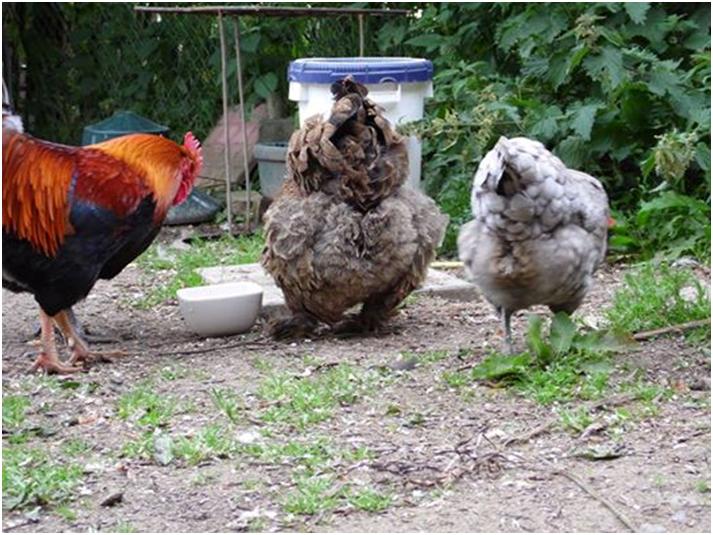
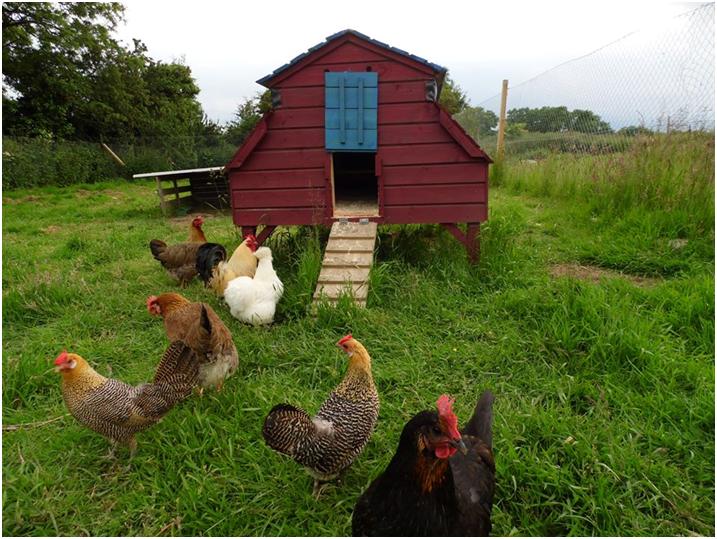
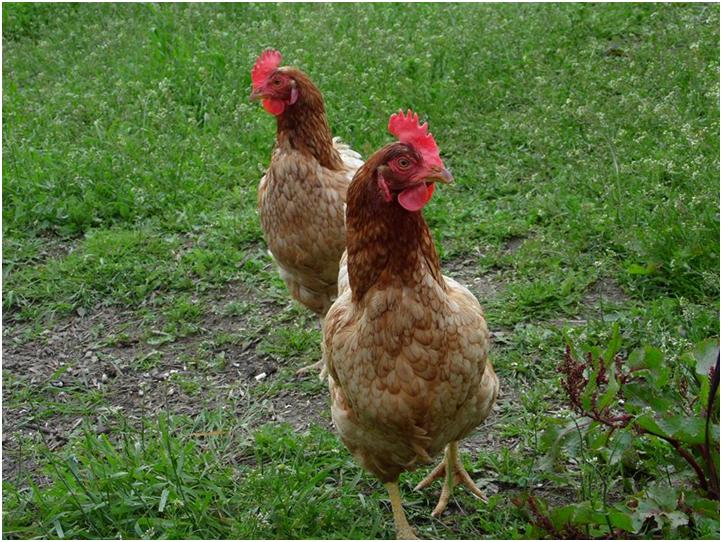
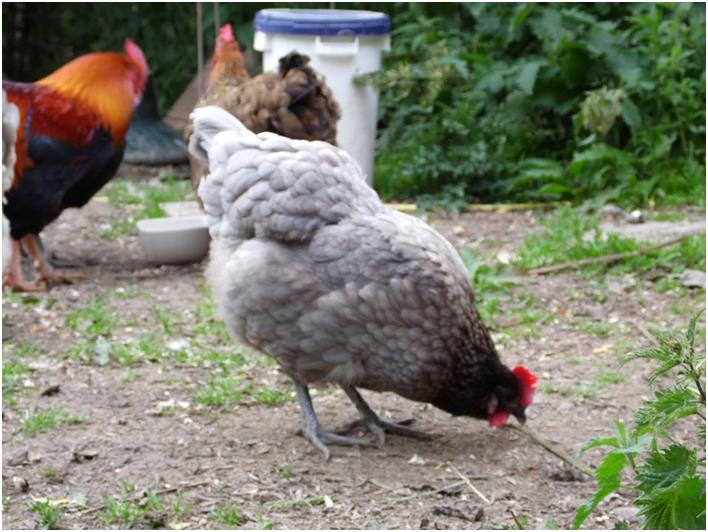 25th May 2014
25th May 2014
May is International Respect for Chickens Month Alice, Fitz and friends have food preferences, just like humans: they enjoy treats of spaghetti, corn, bread, and berries and one of their favourite foods is melon. Having a preference means being aware and having the capacity to enjoy the pleasurable things in life. It entails having choices and being able to make choices that best fit one’s needs and desires. It is very obvious to anyone who knows chickens that their preference is to be respected and liberated by humans. None of them willingly choose to be oppressed in the way they are when they are used for their eggs and their flesh. 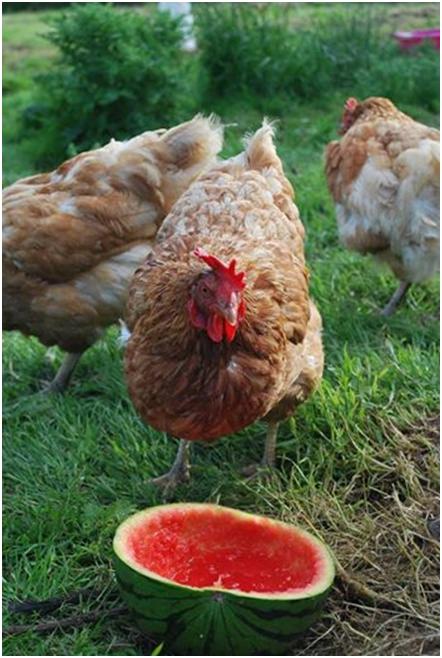
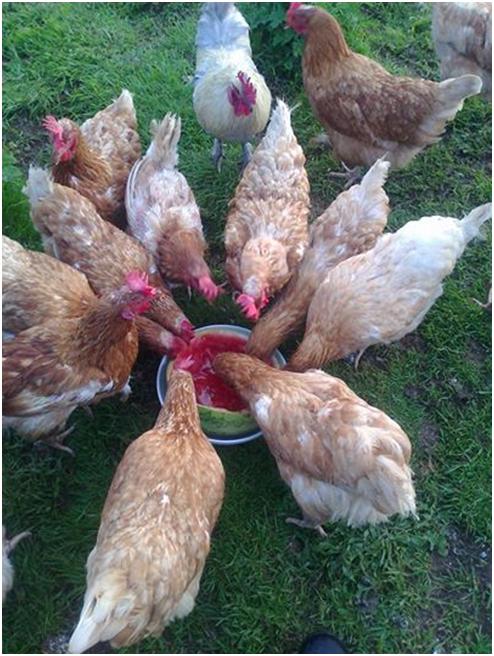 26 May 2014
26 May 2014
“Poor animals, how jealously they guard their bodies, for to us is merely an evening’s meal, but to them is life itself.” – T Casey Brennan Like all of us, chickens are embodied. The life that they treasure depends on their functioning bodies. When we use their bodies for food such as eggs and flesh, we inflict a variety of ailments on them from osteoporosis to heart disease to cancer. Even before they are slaughtered, their very bodies become places of torture. Next time you think of eggs or chicken’s flesh as harmless foods, think of how you depend on your body to feel well and grant that same right to feel well to chickens too. That is what veganism is about. 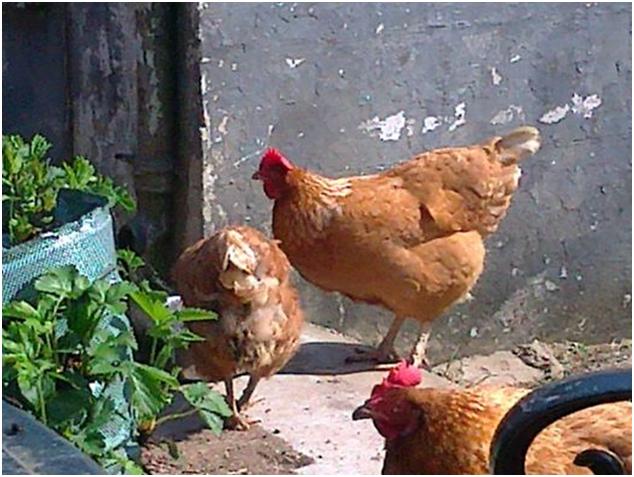 27 May 2014
27 May 2014
The animals of the world exist for their own reasons. They were not made for humans any more than black people were made for whites or women for men. – Foreword to The Dreaded Comparison: Animal Slavery and Human Slavery (1996) by Marjorie Spiegel, p. 14 (Joy and her comrades at Eden Farm Animal Sanctuary, victims of our disrespect and of our speciesist failure to include equally sentient others in our circle of justice, compassion or our moral consideration). Was the taste, convenience, or adherence to tradition of their eggs worth the harm it cost them? 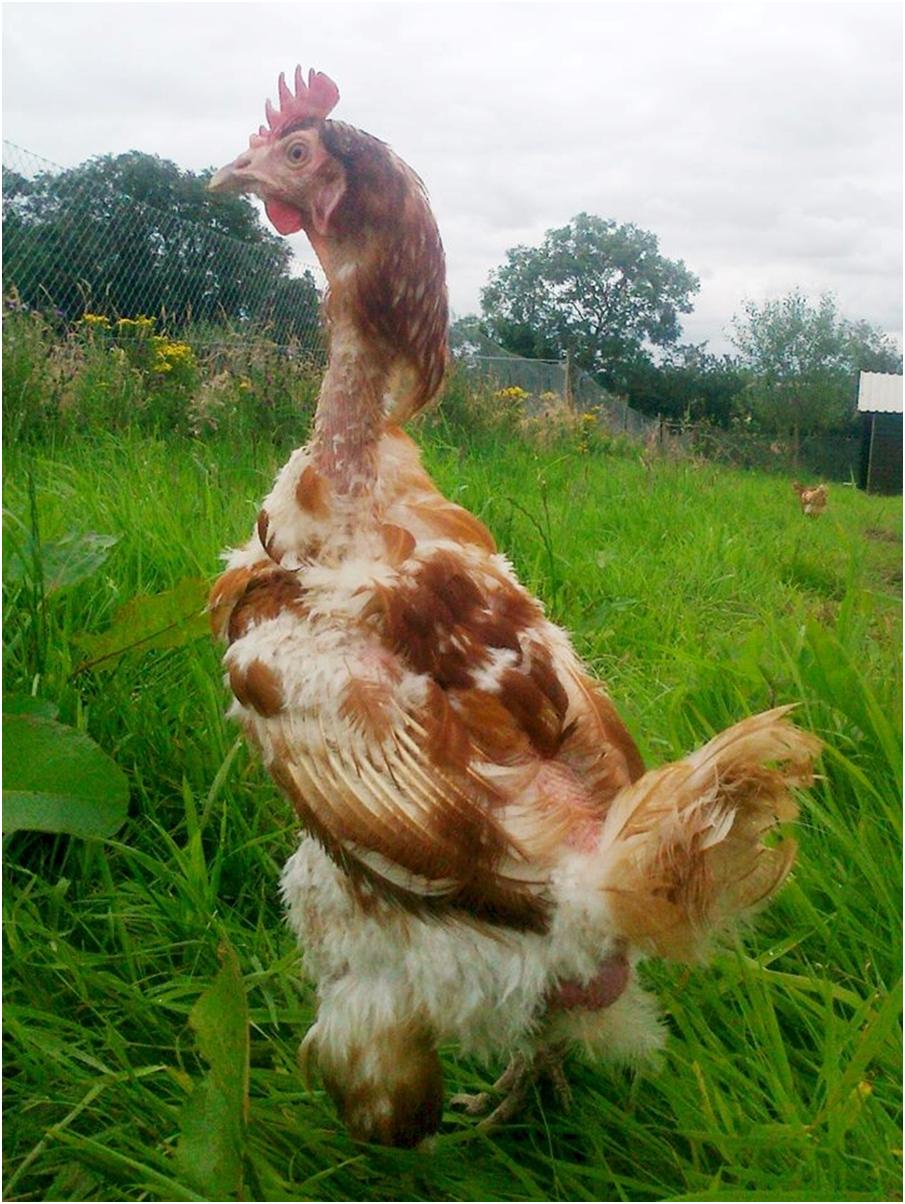
31st May 2014
Who are chickens? They are individuals, as different from each other as we humans are from each other. Yet each one is sentient and aware of what is happening to him or her. Most chickens are very sociable and gregarious. But some, whist not solitary, are more independent and like to spend the day wandering a little apart from the flock. Some are very gentle, some are shy, others are uninhibited and outgoing. They have favourite friends, chosen ones with whom they range and forage, and sleep beside at night. Chickens have an enormous capacity for pleasure and they utter beautiful sounds of joy and excitement at the simple things in life, like a dust bath on a sunny day, or a discovered edible morsel. When sun bathing they have a look of intense, mindful, sensory awareness in their eyes and on their faces. They run away when frightened and call out when in pain. This is what it is to be a sentient being. Eating chickens’ eggs and their flesh precludes us from knowing who they are. Yet, even when we are blind, every individual one of them exists with conscious awareness of the lives we have bred them into. Chickens need our love and our respect. We need to stop thinking of them as food, and think of them as someone. Only then can we know them for who they are.
Respecting Chickens as Sentient Beings
We can stop this. It costs us so little to be vegan, yet this small cost to us means everything to them. Veganism is the least we can do to create a future where other sentient beings are not bred into life by and for humans, but are born into freedom, to their parents, and into their natural ecological environment; conditions to which chickens in particular have demonstrated not only the capacity to withstand, but in which they thrive without human interference. Make every day a day of respect for other sentient beings.

